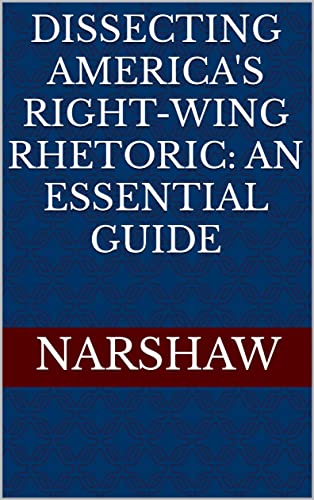The Algorithmic Proper: Dissecting Proper Wing Watch on Twitter
Associated Articles: The Algorithmic Proper: Dissecting Proper Wing Watch on Twitter
Introduction
With nice pleasure, we are going to discover the intriguing subject associated to The Algorithmic Proper: Dissecting Proper Wing Watch on Twitter. Let’s weave fascinating data and supply contemporary views to the readers.
Desk of Content material
The Algorithmic Proper: Dissecting Proper Wing Watch on Twitter

Twitter, a platform as soon as envisioned as an area for open dialogue, has turn into a battleground for ideological clashes. Nowhere is that this extra obvious than within the ongoing battle to outline and counter the unfold of what many understand as right-wing extremism. Central to this battle is Proper Wing Watch (RWW), a non-profit group that makes use of Twitter, amongst different platforms, to watch, doc, and critique the actions of conservative and far-right figures and teams. Understanding RWW’s Twitter presence requires inspecting its strategies, influence, and the broader context of on-line political discourse.
RWW’s Twitter account acts as a vital dissemination level for its investigative work. It shares excerpts from speeches, interviews, and on-line posts, usually highlighting statements deemed controversial, hateful, or deceptive. The group’s technique is multifaceted, using a mixture of direct citation, contextual evaluation, and pointed commentary. This strategy goals not simply to reveal problematic rhetoric but additionally to offer a vital lens by means of which to know its implications.
The group’s tweets usually hyperlink to longer articles and movies on its web site, offering a extra in-depth evaluation of the problems at hand. This layered strategy permits RWW to cater to completely different ranges of engagement: a fast abstract on Twitter for fast consumption, and a extra detailed investigation for these searching for a deeper understanding. This technique is extremely efficient in maximizing attain and influence.
Nevertheless, RWW’s Twitter presence will not be with out its critics. Many accuse the group of bias, claiming that its focus disproportionately targets the correct wing whereas ignoring comparable points on the left. This criticism is usually fueled by the inherently subjective nature of figuring out "extremism" and "hate speech," ideas which are themselves contested and sometimes outlined in another way throughout the political spectrum. The very act of choosing which statements to focus on and the right way to body them inevitably introduces a level of editorial judgment, opening RWW as much as accusations of cherry-picking and misrepresentation.
Moreover, RWW’s critics argue that its concentrate on particular person statements, usually taken out of context, can result in a distorted image of the people and teams being focused. The nuances of political speech are sometimes misplaced within the rapid-fire format of Twitter, leading to a simplified and probably deceptive narrative. This criticism highlights the inherent challenges of distilling advanced political ideologies into brief, simply digestible tweets.
The effectiveness of RWW’s Twitter technique is additional sophisticated by the platform’s personal algorithms. Twitter’s suggestion system, designed to maximise engagement, can inadvertently amplify each optimistic and detrimental reactions to RWW’s tweets. This could create echo chambers, the place customers are primarily uncovered to data reinforcing their pre-existing beliefs, thus probably exacerbating political polarization. The algorithmic amplification of RWW’s content material, meant to boost consciousness, may also contribute to the unfold of the very rhetoric it goals to critique.
The influence of RWW’s Twitter exercise extends past merely elevating consciousness. The group’s tweets usually function a supply of data for journalists, teachers, and policymakers, influencing the broader public discourse on right-wing extremism. By offering a readily accessible archive of doubtless problematic statements, RWW contributes to a rising physique of proof used to tell discussions in regards to the risks of hate speech and disinformation.
Nevertheless, this affect can also be a supply of rivalry. Critics argue that RWW’s affect disproportionately shapes the general public notion of the correct wing, contributing to detrimental stereotypes and fostering additional division. They contend that the group’s concentrate on essentially the most excessive voices on the correct creates a skewed illustration of the broader conservative motion. This raises considerations in regards to the potential for RWW’s work to inadvertently gas political polarization fairly than bridging the divide.
The moral implications of RWW’s work additionally deserve cautious consideration. The group operates in a gray space, navigating the advantageous line between respectable criticism and probably dangerous character assassination. The query of whether or not highlighting sure statements constitutes "doxing" or contributes to on-line harassment is a fancy one, with no simple solutions. RWW’s dedication to transparency and its efforts to keep away from private assaults are essential in mitigating these dangers.
Furthermore, the very nature of on-line discourse makes it tough to evaluate the long-term influence of RWW’s Twitter exercise. Whereas the group could obtain short-term good points by way of elevating consciousness and influencing public opinion, the long-term results on political polarization and the unfold of extremism stay unsure. The dynamic and ever-evolving nature of on-line platforms like Twitter makes it difficult to measure the true influence of any single actor, together with RWW.
In conclusion, Proper Wing Watch’s Twitter presence is a fancy and multifaceted phenomenon. Its efforts to watch and critique right-wing extremism have undoubtedly raised consciousness and influenced public discourse. Nevertheless, the group’s strategies and influence stay a topic of intense debate. The inherent challenges of on-line political discourse, coupled with the complexities of defining and combating extremism, make it tough to definitively assess RWW’s contribution to the broader dialog. Finally, understanding RWW’s position requires a nuanced evaluation that considers each its optimistic contributions and its potential drawbacks, acknowledging the restrictions of its strategy inside the context of the ever-changing panorama of on-line political communication. The continued dialog surrounding RWW’s actions underscores the vital want for a considerate and accountable strategy to on-line political engagement, one which prioritizes accuracy, context, and a dedication to fostering productive dialogue, even amidst stark ideological variations. The way forward for on-line political discourse, and the position of organizations like RWW, will rely upon addressing these challenges successfully.








Closure
Thus, we hope this text has supplied worthwhile insights into The Algorithmic Proper: Dissecting Proper Wing Watch on Twitter. We thanks for taking the time to learn this text. See you in our subsequent article!